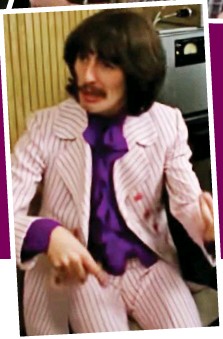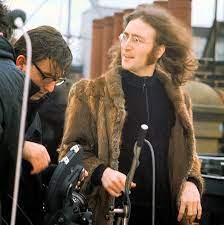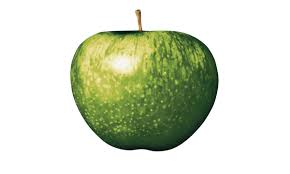Right: Giles Martin and Okell reveal the bass
drum thumping during the snare breaks in “Two of Us.”
Wrong: They reduce the rest of the song to iciness, destroying
the blend of voices and overall warmth.
Right: Spector, Martin/Okell, Johns---in fact, all who produced
the song---mixed “Dig a Pony” to good effect.
Wrong: Spector cut the “All I want is you” McCartney line in the
intro of "Dig a Pony."
Right: Spector slowed down “Across the Universe” and added fine
Richard Hewson orchestration.
Wrong: Spector all but eliminated the presence of the other
Beatles, including background vocals, and added a putrid heavenly
women’s choir straight out of Montovani.
Right: Spector repeated the last chunk of “I Me Mine,” stretching
the song from a mere 1:34 to 2:21. He disguised the repeat with a small
orchestral arrangement by Richard Hewson.
Right: Hicks, Massey, Rouse did the same thing on “Let it Be. .
.Naked” but without orchestra, changing the mix to feature different
instruments in order to hide the repeat.
Wrong: Martin/Okell somehow made the "I Me Mine" drums less
present, the guitars less powerful, and mixed the voice up. Where is the
hi-hat?
Wrong: The Beatles abandoned the “flamenco” break in "I Me Mine"
that was so much fun to hear during the Twickenham rehearsals.
Right: Spector included the “Dig It” jam on “Let it Be.”
Wrong: Spector did not include enough of the “Dig it” jam on “Let
it Be.” The 4:10 version on Johns’ “Get Back” album could have been
broken in half, as two interludes, giving some continuity to the album.
Right: Glyn Johns mixed “Let it Be” with great warmth and great
drum presence. It feels live. Billy Preston’s organ has immediacy and
surprise.
Wrong: Martin/Okell somehow reduced the overall warmth of “Let it
Be,” while improving clarity. Paul’s vocal is needlessly mixed up.
Right: Spector added excellent Richard Hewson orchestrations to
“Across the Universe,” “The Long and Winding Road,” and “I Me Mine.”
Wrong: Spector added excellent Richard Hewson orchestrations to
“Across the Universe,” “The Long and Winding Road,” and “I Me Mine.”
Wrong: Spector added awful angelic choirs to “Across the
Universe” and “The Long and Winding Road,” introducing Muzak to Beatles
music.
Right: Martin/Okell remixed the single, “Don’t Let Me Down” for
the “Let it Be” boxed set, including it on a so-called EP that never
existed.
Wrong: Martin/Okell somehow reduced the presence and warmth of
“Don’t Let Me Down,” making it sound thinner and colder---as was the
case with their treatment of “Two of Us.”
Right: Martin/Okell added banter before the beginning of the
remixed “Don’t Let Me Down,” obviously considering adding it to the
final album.
Wrong: Spector and Martin/Okell did not include this or any
version (there were several to choose from) of “Don’t Let Me Down” on
the album.
Right: Spector added banter before “Get Back” and the “pass the
audition” line at the end.
Wrong: Spector cut off the outro of “Get Back.” He could have
added it---the long version---after the “pass the audition” line.
Right: Glyn Johns’s concept of a less formal album, with chatter
between tracks.
Wrong: Glyn Johns deliberately chose less polished versions of
the songs, to enhance the informality (including one that did not even
have finished lyrics, “Teddy Boy.”) No wonder all his album mock-ups
were rejected.
Right: Lennon’s suggestion to rework “Two of Us” as an acoustic,
gentle number.
Wrong: Lennon snorting heroin.
Right: McCartney’s many excellent suggestions for song
arrangements, including instructions for guitar and drum parts.
Wrong: McCartney’s many excellent suggestions for song
arrangements, including instructions for guitar and drum parts.
Right: The Beatles spend a few hours working on “All Things Must
Pass.”
Wrong: The Beatles spend many more hours working on “Maxwell’s
Silver Hammer.”
Right: “Get Back” starts out as a protest song against government
persecution of Pakistani refugees.
Right: “Get Back” winds up a kind of novelty country tune.
Right: “Let it Be” 2021 includes studio take (3) of “One After
909,” a kind of rollicking barrelhouse version.
Right: The Beatles play “One After 909” super tight on the
rooftop.
Wrong: Lennon didn’t want to do “One After 909.”
Right: George Martin suggests the band and Billy Preston continue
to work on a nifty, bluesy version of "Love Me Do."
Wrong: Lennon rudely ignores him.
Right: McCartney's attempt to create a definitive album from the
sessions, "Let it Be. . .Naked."
Wrong: Calling it "Let it Be. . .Naked" instead of "Get Back."
Right: Paul, George, Ringo reconvened with producer George Martin
on Jan. 3---Lennon having egomaniacally quit the band---to finish
Harrison’s “I Me Mine.”
Wrong: They left it at 1:34.
Wrong: They added gratuitous overdubs to “Let it Be,” Harrison’s
spectacular solo aside, instead of properly finishing “I Me Mine.”
Wrong: They stopped working together, instead of continuing as a
trio.
Right: Ringo’s superb, stylish, economical drumming on the
project.
Wrong: Ringo farts in a crowd.
Right: Ringo courteously announces to crowd that he has just
farted.
Right: Yoko Ono knits.
Wrong: Anything else Yoko Ono did.
Right: Michael Lindsay-Hogg sticks microphone in Twickenham
Studios cafeteria bouquet.
Wrong: Michael Lindsay-Hogg does not use conversation in “Let it
Be.”
Right: Peter Jackson uses conversation in “The Beatles: Get
Back.”
Right: Billy Preston.
Wrong: Not enough Billy Preston.
Right: George Harrison's pink striped suit and purple ruffled
shirt.

Wrong: John Lennon borrowing one of Yoko's fur coats.






![]() Get
Back/Let it Be
Get
Back/Let it Be